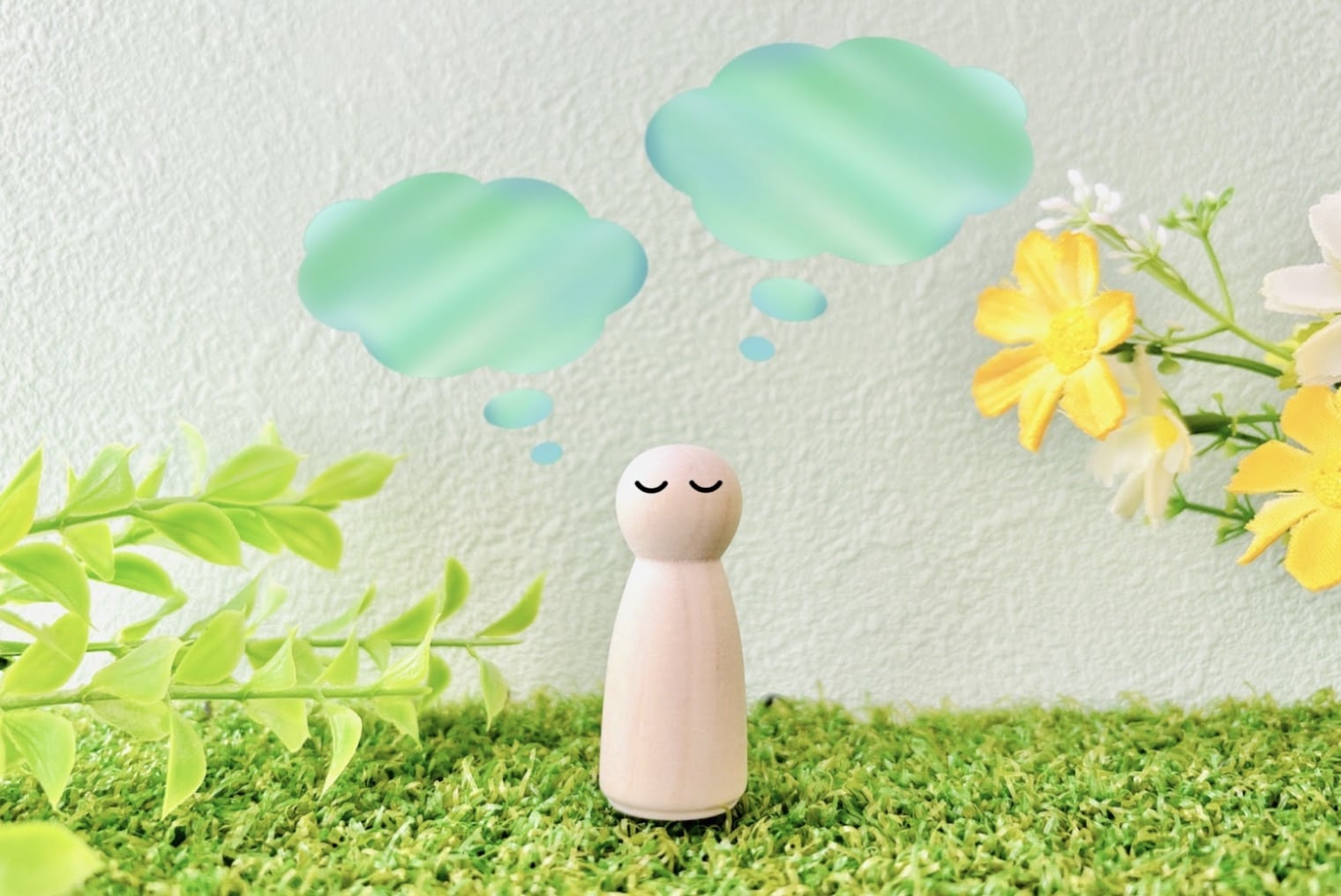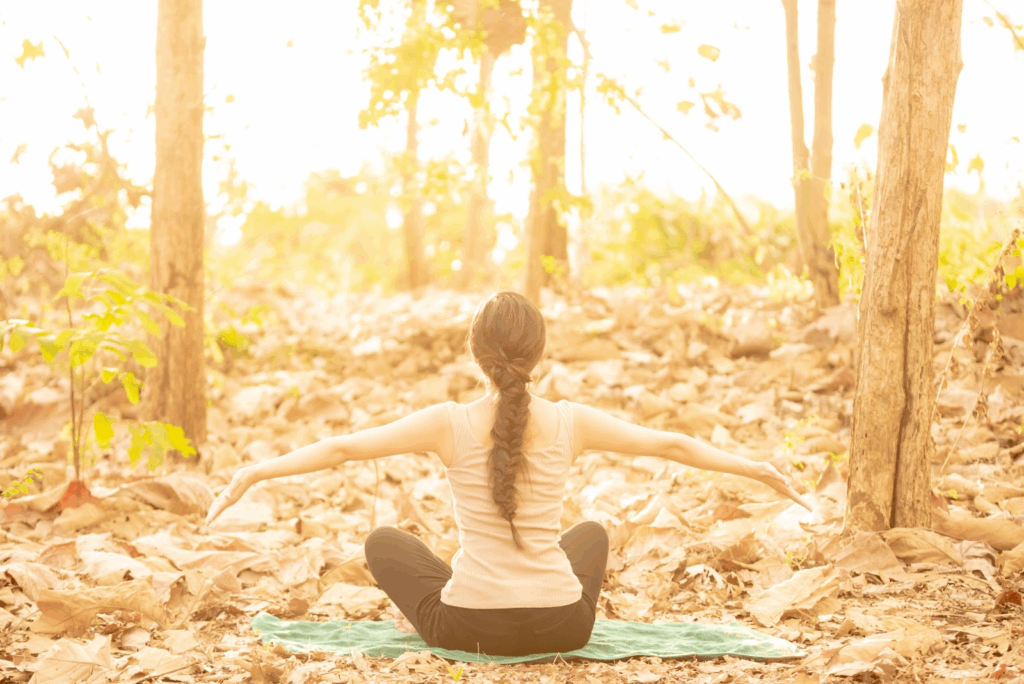Meditation for Stress and Anxiety: Calm in Daily Life

Meditation for stress and anxiety is a proven method to calm the mind, ease tension, and build emotional balance. Millions of people use meditation techniques such as mindfulness, breathing practices, and guided sessions to reduce anxiety, lower stress levels, and even improve sleep quality. By making meditation part of daily life, you can relieve workplace pressure, manage anxious thoughts, and create lasting resilience against depression and burnout.
Benefits of Meditation for Stress Relief
Stress is a natural part of life, but when it becomes chronic, it can harm both the body and the mind. Prolonged stress raises cortisol — often called the “stress hormone” — which disrupts sleep, weakens immunity, raises blood pressure, and accelerates burnout. Meditation counters these effects by calming the nervous system, regulating hormones, and training the brain to stay steady even under pressure.
Key benefits include:
- Improved sleep quality: Meditation helps slow brainwave activity, making it easier to fall asleep and stay asleep. Many practitioners notice reduced insomnia and deeper rest within weeks of practice.
- Better focus and concentration: By anchoring awareness in the present, meditation strengthens the prefrontal cortex — the brain’s “focus center.” This improves productivity, memory, and learning.
- Lower blood pressure and heart rate: Breathing-based meditation activates the parasympathetic nervous system (“rest and digest”), which lowers cardiovascular strain and supports long-term heart health.
- Increased emotional resilience: Meditation builds tolerance to daily stressors, reducing reactivity and enhancing patience, empathy, and problem-solving. Over time, it becomes easier to respond calmly rather than react impulsively.
- Reduced physical tension: Stress often manifests as tight muscles in the neck, shoulders, or jaw. Body scan and breath practices promote relaxation and relieve this built-up tension.
- Stronger immune system: Studies show that regular mindfulness practice is linked with improved immune response, helping the body resist illness during stressful periods.
Unlike quick fixes such as caffeine or distraction, meditation gradually builds inner strength. With consistent practice, it creates lasting changes in the brain and body, equipping you to handle challenges with clarity and calm.
How Meditation Helps with Anxiety

Anxiety often feels like a cycle of overthinking, fear of the future, and restlessness. Meditation interrupts this cycle by anchoring attention in the present moment.
- Mindfulness meditation teaches you to observe thoughts without judgment.
- Breathing meditation slows the nervous system and eases physical tension.
- Guided meditation provides gentle structure for beginners.
Over weeks of practice, many people notice a shift: instead of being overwhelmed by anxious thoughts, they gain the ability to step back and breathe through them.
Simple Meditation Technique You Can Try Today: Susoku-kan
One of the most effective and accessible meditation practices for stress and anxiety is Susoku-kan, a traditional Zen method of breath-counting. Instead of trying to control or suppress thoughts, this technique uses the natural rhythm of breathing as a gentle anchor.
How to practice Susoku-kan (5–10 minutes):
- Sit in a stable and comfortable posture, with your back straight but not tense.
- Breathe in naturally through the nose.
- As you exhale, silently count “one.” On the next exhalation, count “two,” and continue up to “ten.”
- If your mind wanders or you lose count, simply return to “one” without judgment.
- After reaching ten, begin again from “one.”
Why it works: Susoku-kan creates a rhythm that steadies both body and mind. The counting gives restless thoughts less room to spiral, while the focus on exhalation promotes relaxation of the nervous system.
Even short daily sessions of Susoku-kan can noticeably reduce physical tension, sharpen concentration, and bring a sense of calm clarity into daily life.
Conclusion

Meditation for stress and anxiety is more than a relaxation method—it is a life skill. By practicing regularly, even for just a few minutes a day, you can transform how your mind and body respond to challenges. Whether you are a busy professional, a student under pressure, or simply someone seeking calm, meditation offers a pathway to balance and peace.
Frequently Asked Questions
FAQ 1: Can meditation really reduce stress?
Answer: Yes, meditation is scientifically proven to reduce stress by lowering cortisol. Regular practice calms the nervous system and improves overall emotional balance.
Real Results: A 2019 study showed participants in an 8-week mindfulness program reported a 38% reduction in stress levels.
Takeaway: Consistent meditation is the most natural and lasting way to manage stress.
FAQ 2: How long should I meditate for anxiety?
Answer: Even 5–10 minutes a day can noticeably reduce anxiety symptoms. What matters most is consistency, not duration.
Real Results: Many beginners report reduced anxious thoughts within one week of daily 10-minute sessions.
Takeaway: Short but daily meditation is more effective than long but irregular practice.
FAQ 3: Can meditation improve sleep caused by stress and anxiety?
Answer: Yes, meditation prepares the body for rest by slowing heart rate and easing the mind. Evening meditation is especially helpful for insomnia.
Real Results: A clinical trial found that mindfulness meditation reduced insomnia severity by 42% in participants.
Takeaway: Bedtime meditation is one of the best habits for overcoming restless nights.
FAQ 4: Do I need an app or teacher to start meditation?
Answer: No, you can begin with simple breathing techniques on your own. Apps and teachers provide guidance, but they are optional.
Real Results: Thousands of people successfully begin meditation using free online audio or video sessions.
Takeaway: Start with the simplest tools available and build your practice naturally.
FAQ 5: How quickly will I see results from meditation?
Answer: Many people feel calmer after the first session, while deeper benefits come with weeks of practice. Patience and persistence are key.
Real Results: Participants in an 8-week mindfulness program reported less anxiety and improved focus across daily activities.
Takeaway: Meditation brings both immediate calm and long-term resilience if continued.
FAQ 6: Which type of meditation is best for stress relief?
Answer: Mindfulness and breathing techniques are the most effective and easiest for beginners. They directly target the stress response.
Real Results: Studies show that mindful breathing lowers heart rate within minutes and reduces perceived stress after two weeks.
Takeaway: Start with simple breathing or mindfulness to get the fastest results.
FAQ 7: Can meditation replace therapy or medication for anxiety?
Answer: No, meditation is not a replacement but an excellent complement to professional care. It strengthens coping ability alongside other treatments.
Real Results: Patients combining therapy with meditation reported higher recovery rates and lower relapse compared to therapy alone.
Takeaway: Use meditation as an additional tool, not a substitute, for clinical treatment.
FAQ 8: What time of day is best for meditation?
Answer: Morning and evening are the most effective times for meditation. Morning builds focus for the day, while evening helps release stress.
Real Results: Workplace wellness programs found employees meditating in the morning reported 25% better concentration throughout the day.
Takeaway: Choose a time you can commit to daily, morning or evening works best.
FAQ 9: Is meditation safe for everyone with anxiety?
Answer: Yes, meditation is safe for most people, but those with severe trauma may need guided support. Always listen to your body and mind.
Real Results: Trauma-sensitive meditation programs show strong positive outcomes when guided by experienced teachers.
Takeaway: Meditation is safe for almost everyone, but seek guidance if trauma is present.
FAQ 10: Can meditation help with workplace stress and burnout?
Answer: Absolutely, meditation reduces tension and builds resilience in high-pressure environments. It is widely used in corporate wellness.
Real Results: Companies introducing 10-minute daily meditation breaks saw a 32% reduction in employee burnout scores.
Takeaway: Even brief workplace meditation breaks can protect against burnout.
FAQ 11: Can meditation help with depression as well as anxiety?
Answer: Yes, meditation has been shown to ease symptoms of mild to moderate depression by improving emotional regulation and reducing negative thought patterns. It works best when combined with therapy or professional care.
Real Results: A large-scale study published in JAMA Psychiatry found mindfulness-based cognitive therapy reduced relapse rates of depression by 31% compared to treatment-as-usual.
Takeaway: Meditation can support recovery from depression, but it should complement—not replace—professional treatment.
Related Articles
Mindfulness meditation: A research-proven way to reduce stress
Meditation and Mindfulness: Effectiveness and Safety
Mindfulness meditation may ease anxiety, mental stress
A personal story of discovering Susoku-kan, a breath-counting meditation that gently eases anxiety.
Practical tips for quick mindfulness sessions that restore calm in the middle of a hectic day.



